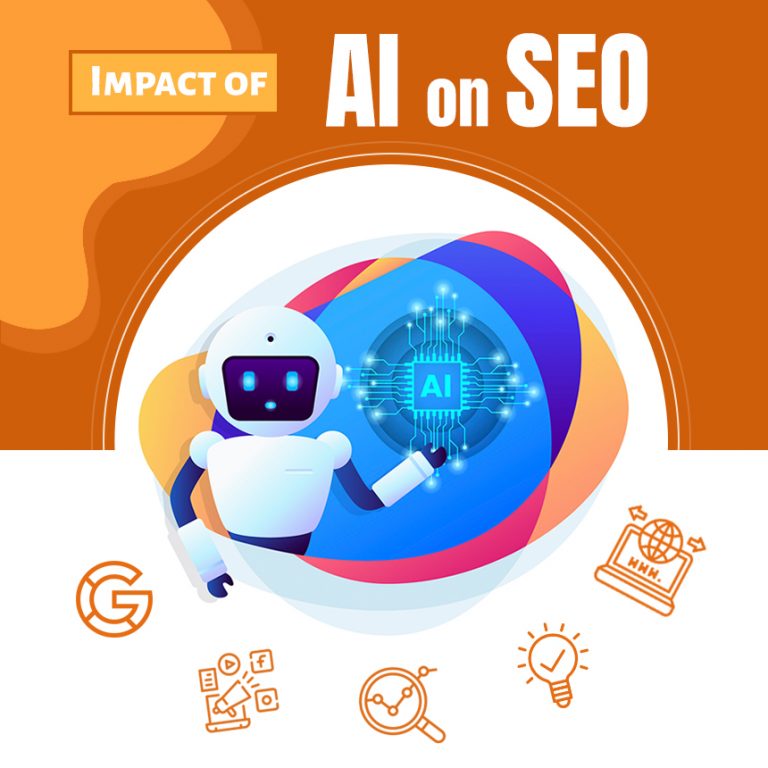
From simple optimization for the website to the complex and ever-growing process of improving the quality of the content, Search Engine Optimization has gone under a lot of changes over the past few years. While some aspects are unchanged, such as keywords and optimizations of meta tags and link building, SEO emerged a lot in mobile optimization, social media marketing, and enhanced user experience.
With over several advancements in the field of machine learning, Google introduced RankBrain to identify the patters and the bucket data. This process resulted in giving a new system that optimizes a new Google search.
SEO is undergoing a lot of changes with the help of Artificial Intelligence and Machine Learning models making enormous advancements in enhancing the relevance of content for the user. And in the coming 2020, AI is most likely to impact the future of search engine optimization through videos, images, voice search, and trained models.
Let’s see a little more about the impact of AI on SEO from the experts:
1. Larry Kim – Founder of MobileMonkey
With the impending advancement of AI, it has become a necessity for every marketer to rethink their marketing strategy to implement AI.
AI tools, such as AI-driven chatbot tools and their abilities to perform various functions and evaluate a huge amount of data, have been creating the SEO landscape and are making is helping marketers build their way into mainstream marketing.
On top of that, AI-powered tools will also help boost keyword research methods for better content strategy, build more reliable analytics and reporting system for SEO teams, and better personalization.
Early adopters in marketing will surely reap the benefits of AI.
2. Dawn Anderson – Managing Director at Bertey
Dawn Anderso is a Managing Director at Bertey – International SEO & digital strategy consultant, who is also a speaker, trainer, and lecturer.
The impact of AI on SEO this year – 2020 is not anywhere near as much as you think. AI and machine learning algorithms are utilized much less in practice as they are in theory. Even with the effects of AI and machine learning in the field of search ranking and classification, for example, in the Google BERT, Elmo, and BERT’s various versions, the practice of adopting huge change across legacy systems is quite tricky. It is going to take a lot of time and experience for that matter. While developments are proliferating over time, challenges for machine learning are not trivial, and we are still open to many problems.
3. Omi Sido, A Senior Technical SEO at Canon Europe
With several competitors across the web, the factors that impact search algorithms are tending to be more complicated than it ever was.
So, on one side, Google is utilizing AI (to be precise the form of AI that is called Machine Learning) to better understand the ‘search intent’ of a user by trying to mimic the human behaviour. Therefore, AI is set to bring a lot of changes in the SEO landscape of 2020 and beyond by turning our eyes back onto optimizing the site based on user behaviour.
On the other side, SEOs (Digital Marketers) have already employed Artificial Intelligence (deep learning, data mining) to evaluate historical data to look forward to future trends.
Again, the focus is on human behaviour, so I guess everybody’s going in the same ‘human behaviour first’ direction.
4. Nathan Gotch – Founder of Gotch SEO
AI is going to take over on us. Just kidding, but there’s an excellent opportunity to work alongside AI and gain even better results.
The massive impact we’ll see from AI is going to be on Google’s side. Google’s primary goal mainly relies on AI for regulating their SERPs. This is far away in the future. But as seen before, if their Rankbrain algorithm can pick SERPs better than a human, they might as well be more efficient mainly because this thing only needs people who work on the AI – not the ones who work on the SERPs themselves.
On the other side, developing software with an AI model can improve efficiencies. For example, if AI could determine some of the easy solutions to finish more difficult tasks in SEO like keyword research. It would allow us to focus more on the creative side of SEO – content, outreach, and more.
5. Chad M. Crabtree – Editor-in-Chief at CareerKarma
The influence of AI in SEO in 2020 is bound to be the same as it is until this point. But only far more prominent and effective. AI is now a significant part of Google’s algorithm, with its ability to track black hat SEO tricks and other outdated techniques, like keyword stuffing and reducing plagiarism.
The fact is, AI is going to be a significant factor in search, and therefore in SEO, and it continues to do so. Luckily, there are tools like SEMrush, Ahrefs, and Moz, which are doing better at AI game and already offering many features that help optimize for SEO in the age of AI and machine learning.
As you have read above, the major impact of Artificial intelligence on SEO is going to bring a lot of changes, and there is no way one can proceed with your website optimization unless they understand the basic idea of how Artificial Intelligence works. Also, this is the right time to look for AI business providers – ONPASSIVE to fulfil the new demands.


